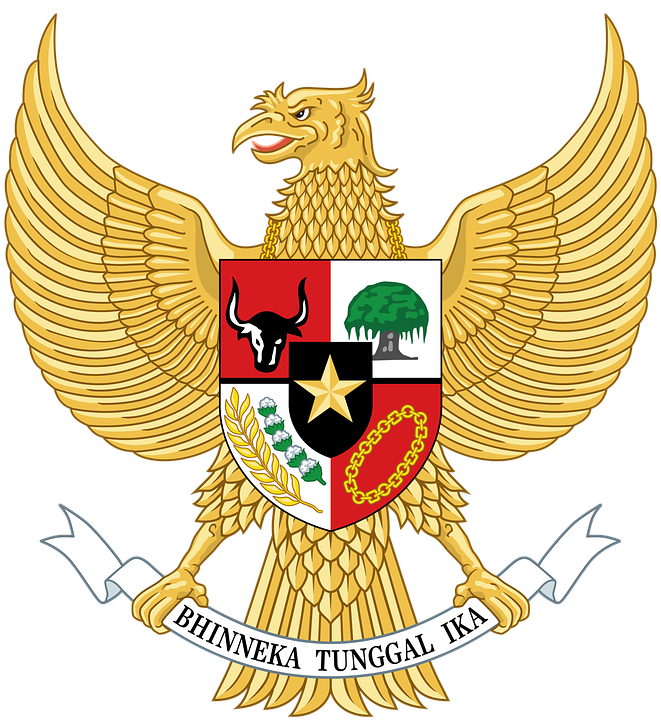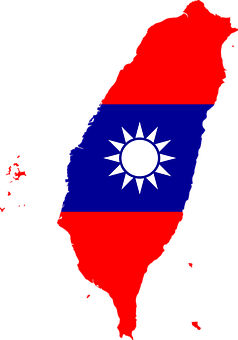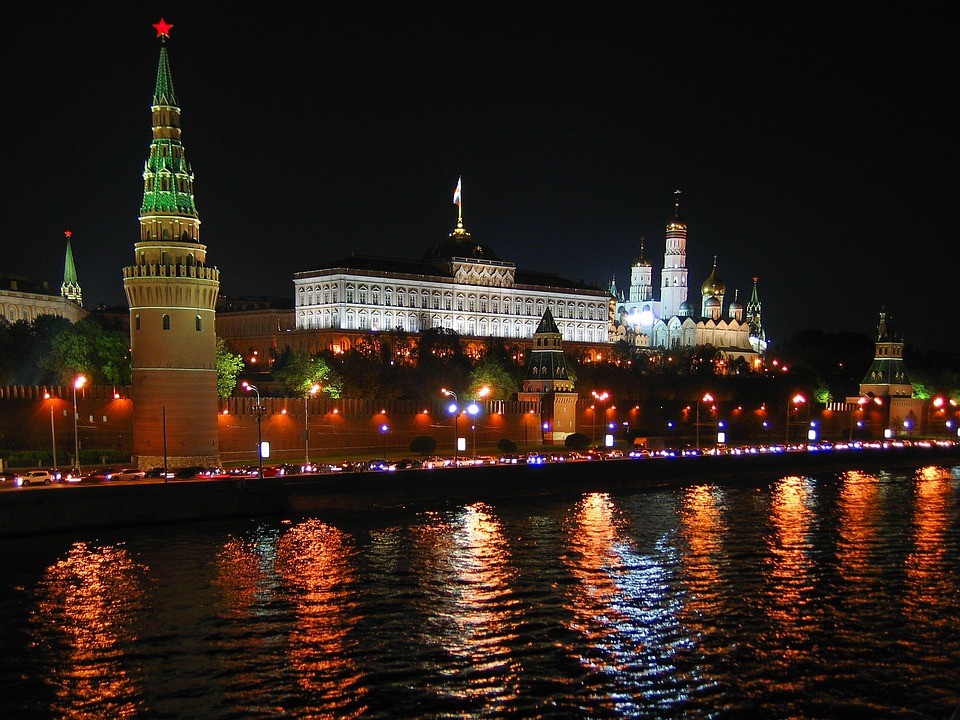Watch our latest TV show HERE
Watch Our Latest TV Program


Watch our latest TV show HERE

Indonesia’s growing economic power is often understated in discussions about the future of Asia. Yet by 2045, it is likely to become the world’s fourth largest economy. It already is the world’s largest Muslim-majority state. President Joko Widodo, known as Jokowi, points out that his cabinet not only estimates that the economy will continue growing, but that his country’s population will also expand from its current 273 million to reach 309 million within the next two decades. In comparison, demographers at the Global Coalition on Aging predict China’s population will dramatically age during the same period, with those over age 50 increasing by 250 million as its working-age population simultaneously shrinks. The Coalition on Aging concludes that this presages the end of China’s era of “heroic economic growth.” Some analysts suggest this is also a strong indicator that Indonesia could become an emerging superpower within the next 25 years.
Today Indonesia is a middle-income nation and a member of the G20. In 2022 it logged its strongest economic record in the last nine years, growing by 5.31%, and supported by a record-high number of exports. Last November the country’s Coordinating Ministry for Economic Affairs announced that Indonesia is targeted to become a developed country by 2043. “While Beijing has pulled back its overseas BRI lending—and Xi has exhibited some notable reticence toward hosting a third Belt and Road Forum—Indonesia challenges the broader narrative that the BRI is somehow fading away,” according to William Yuen Yee of the Jamestown Foundation.
China has invested heavily in the country and intends for Indonesia to serve as an economic cornerstone for its BRI. The CCP leadership touts its megaprojects in Indonesia as a win-win for both countries. That leaves Jakarta caught precariously between leaning on China and standing with the democratic West. The government in Jakarta needs the development funds, although the Indonesian population is not favorable toward China’s involvement in the country.
Understanding Indonesia’s experience with the BRI, says Yee, requires a closer examination of the history behind infrastructure cooperation, major projects beyond the oft-discussed Jakarta-Bandung High Speed Railway and their impacts on the Indonesian public, and the extent of economic engagement between Jakarta and Beijing. Indonesia is the third-largest recipient of Chinese investments at about $560 million, behind only Cambodia and Pakistan. Jokowi created the Global Maritime Fulcrum (GMF) in 2014. It is a strategy to leverage Indonesia’s strategic location in the Indo-Pacific and status as the world’s largest archipelagic state in order to prioritize maritime connectivity and infrastructure development, says Yee. Both Xi’s BRI and Jokowi’s GMF highlight infrastructure development. Since 2008, China has used the BRI in Indonesia as a type of “infrastructure diplomacy” to strengthen cooperation and the development of economic corridors. In 2019 the two governments reaffirmed in writing that there is a “strategic alignment” between the BRI and Indonesia’s GMF. Last year marked ten consecutive years of Beijing being Indonesia’s largest trading partner.
Jakarta needs Beijing to continue on its path to becoming a developed nation, despite tense people-to-people relations and extensive corruption. Yee points out that nine of Indonesia’s BRI projects, worth a total of $5.2 billion, involve scandals, controversies, or alleged violations. Earlier this year escalating racial tensions among employees at a nickel smelter in Morowali turned deadly, causing the deaths of one Chinese and one Indonesian worker, with many more injuried. The joint project enabled Indonesia to become the world’s second-largest, stainless-steel producer, churning out 3 million tons each year. It is ironic that the project also transformed the nation into a primary rival for domestic-made products in China. Last summer, ten years after Xi launched the Maritime Silk Road in Indonesia, Jakarta’s commitment to Beijing’s Belt and Road Initiative is steadfast, suggests Yee. Jusuf Wanandi, a Sino-Indonesian politician who co-founded the Jakarta-based Centre for Strategic and International Studies think tank noted last year that “…Indonesia-China cooperation is not only beneficial to Indonesians and Chinese, but also to all the peoples of East Asia.”
Bilateral relations have continued expanding since Chinese leader Xi Jinping came to power in 2013. Although Indonesia is not permanently locked in a Chinese “debt trap,” Jakarta’s debt is rising. It is, in part, a consequence of Jikowi’s vision for large infrastructure projects to help Indonesia to emerge as the world’s fourth or fifth largest economy in the coming decades. What is uncertain is the destabilizing impact of Indonesians who view themselves as distinct from China, although racially similar. They may not tolerate Beijing’s growing influence in the country as Indonesia’s economy matures and China faces unsurmountable demographic challenges at home.
Daria Novak served in the U.S. State Dept.
Illustration: Indonesia National Emblem (Pixabay)

The US Army is hedging its bet that China won’t invade Taiwan, by laying out a detailed, multi-pronged strategy for deterring a future war in the Pacific. It may, however, be too little and too late. DOD’s budget cuts under the Biden Administration do not bode well for advances in American preparedness for war in the numerous flashpoints existing in today’s world. During a talk on China this week at the American Enterprise Institute (AEI), US Secretary of the Army Christine Wormuth told the gathering “… obviously [we] have to prepare, to be prepared to fight and win that war.” She then added a mixed message signaling that she personally was “not of the view that an amphibious invasion of Taiwan is imminent.” Officials in Beijing analyzing her words might take this message to imply the US is not concerned about the threat, or that such an act would be below the threshold requiring a response from Washington. Translated into Chinese the word imminent can mean “working towards something.” It doesn’t have the same sense of urgency or intensity as the English word.
Secretary Wormuth’s use of “imminent” is significant. By Western definition the concept of an imminent threat is traditionally understood in a temporal sense to mean that a state is faced with a physical danger that is both real and could occur within an immediate time frame. Under those conditions a state, or a partner of a threatened state, understands the threat to be at the center of the timeline extending into both the past and near future.
One issue related to the Chinese threat toward Taiwan is that the United States and China have very different concepts of linear time. The US measures time in very short periods or “events,” while Chinese leaders talk in terms of decades and generations. If the CCP leadership believes Secretary Wormuth’s use of the word suggests the US is not seriously concerned about Beijing “working towards” a war with Taiwan, it may alter the timing of the CCP’s military and political policy toward Taipei.
The nexus of two opposing great powers, both commanding advanced weaponry, means that every single word spoken by leaders gets digested and analyzed in both capitals so that analysts can brief their leadership on the threat environment. What serves as a calming domestic political statement spoken in Washington, can act as a military permission slip in Beijing. If the United States puts weapons systems in place in Asia but the leadership in Washington talks about the lack of an imminent threat, Beijing will consider three possible conclusions about American political willpower. First, it could conclude the United States is serious about defending Taiwan because it is moving to reinforce the US Pacific command. Second, the words spoken by American military and political leaders are simply political theater and can be ignored. The third consideration is the most dangerous. Beijing could misinterpret the words to mean that Washington doesn’t see a serious near-term threat in the Pacific. This interpretation provides China more leeway in how it carries out its Taiwan policy and may embolden Xi Jinping to act.
If Xi concludes Washington doesn’t see the danger and will not choose to become involved despite military sales and training exchanges with Taiwan, the Chinese leader may choose to force Taiwan’s hand at the most convenient time for Beijing. It may not be in the form of kinetic warfare as China’s influence operations in Taiwan are extensive, but it could tilt toward a calculated action to force Taiwan under Beijing’s control.
Many military and political analysts in Washington who understand the nuances of the Chinese language and the country’s political culture suggest that their briefings are falling on deaf ears inside the Biden Administration. They argue that the US leadership must improve its understanding of how China perceives the world and responds to comments, like those of Secretary Wormuth.
It is not the first time a few words made a mark in US-China relations. When President Carter recognized mainland China as the legitimate government of the country and formally opened relations, the US renamed its Embassy on Taiwan the American Institute in Taiwan. Essentially it performs the same tasks as any US embassy. The word change allowed Beijing to save face.
In April 2001, a US Navy EP-3A ARIES reconnaissance aircraft collided with a Chinese jet midair. The Chinese pilot was attempting to intimidate the American plane flying in international airspace 70 miles off China’s coastline. The Chinese pilot died when his plane fell into the ocean after hitting the US aircraft. The US plane was damaged and forced to make an emergency landing on China’s Hainan Island. The plane and its 24 crew members were detained. For 11 days the two countries worked to develop the “Letter of the Two Sorries.” The United States in English stated that the country was “very sorry” for the death of the Chinese pilot. In English the wording does not insinuate culpability. For its domestic audience, Beijing translated the sentiment to mean the US took responsibility and made a formal apology. Words matter.
Daria Novak served in the U.S. State Dept.
Illustration: Pixabay

As Putin’s war in Ukraine extends into its second year, there are few signs the conflict will be winding down in the near future. What Russian leaders once thought would be a fast operation taking only a few weeks, has left Moscow with few safe avenues for egress. Lev Gukov, former head of the leading Levada Center polling organization, says that unless the average Russian citizen learns of the true level of defeats on the front, the Russian people will continue to support the war. The regime retains support by tightly controlling information to maintain a positive image of the war effort. Putin ordered more than 600,000 Internet pages blocked and closed dozens if not hundreds of print outlets.
Despite this censorship, overall domestic support for Putin’s war has declined. Radio Svoboda, in Spring 2019, reported support for the Russian president personally was in a multi-year decline. Since the invasion of Ukraine about 70% of the population believe in the war and by extension their leader; although simultaneously 50% of the same respondents want it to end. Gudkov points out that public support is “not very clearly expressed, but quite tangible for the authorities and the war itself in society.” Paul Goble, writing in Eurasia Review this week, says this duality is partly due to the fact that “many Russians are deeply aware of the war’s criminal nature but prefer to isolate themselves from the unpleasant truth and avoid receiving objective information.”
Last fall the Russian publication Readovka News suggested that there is an additional factor that ensures passive support for the war, “…the constant stream of propaganda that paints a harrowing future in the case of Russia’s defeat.” Although the human cost of the extended war has a negative impact on the population, the desire to trust those inside the Kremlin to maintain stability remains and “does not affect the ratings of trust in the country’s leadership, since the prolongation of the special military operation means the prolongation of the effects of the consolidation of society and power.” One consequence of this view is that Putin appears content to drag out the war and pull in the country’s population to support it. Goble says that, at the regional level, the government has created volunteer organizations to help those mobilized obtain supplies, including forcing participation by schoolchildren.
Despite government attempts to coerce workers and students to help, there is a steadily declining level of involvement, according to the publication Russica2. A Levada Center study recently confirmed that the population is no longer following news of military operations in Ukraine at the previous levels. There is, however, a small and important radicalized group of Russians who, together with those in the general population who succumb to the massive pro-war propaganda effort, that are emerging as the new supporters Putin needs to continue the war. These new “national patriots” are the second reason why Putin cannot and will not end the war, according to analysts studying the situation.
Growth in the number of beneficiaries, if not of the war itself, is the third reason the war will continue, according to Goble. Today, he says, “the public ratings of not only federal but also regional as well as local authorities depend on their degree of involvement in the war.” Internal politics is transferred from internal socioeconomic problems to the level of international politics. The impression left is that the war is protecting the national interests of Russia. Political support at the local level helps guarantee votes in elections and the popularity of patriotic governors who support the war effort. News reports out of Russia indicate that politicians are attempting to outdo each other in attempts to be seen as the strongest of patriots. “Some Russian State Duma deputies propose involving these officials in teaching at schools in the occupied territories and promise to support them when they are nominated for elections,” adds Goble.
A fourth reason for the unlikelihood of ending the war soon is a result of the expanding number of radicalized patriots across the country. They have increased influence in Russian society. This propaganda cult is demanding a lot from the non-radicalized portion of the population. It may at some point create further domestic schisms between apolitical segments of Russian society and the more radicalized Putin supporters returning from military service in Ukraine. Many political analysts see the only viable solution for Putin as one that delays the impending social upheaval by prolonging the war, with the goal of smoothing out external manifestations of the social conflicts. Goble suggests this will only exacerbate the causes of social conflict and that at some point the Russian people will learn the truth about Kremlin politics. When that occurs, the world could be witness to an implosion of the Russian Federation.
Daria Novak served in the U.S. State Dept.
Photo: Pixabay

Vladimir Putin, a former career USSR KGB agent, is engaging in a brutal assault on the civilian infrastructure of Ukraine, particularly energy and water. It is not a new tactic for Moscow or for socialist regimes across the planet. Starvation has been a key result of left-wing governments for a century, in Europe, Asia, and Latin America.
Ukraine has been victimized before, as it is now. Stalin decided to collectivize agriculture. Communist Party officials stole land from their owners. This 1932-1933 holocaust was known as the “Holodomor.” At least 3.9 million died as a result. An additional million died in Kazakhstan and in parts of Russia that rebelled against forced socialization.
Following the Second World War and the Soviet domination of Eastern European nations, collectivization was to varying degrees imposed on the captive nations. Predictably, production diminished sharply.
That was barely a warm-up for what occurred when Mao Zedong and his Communist Party took over China. “Mao’s ‘Great Leap Forward’ in agriculture, beginning in 1958, led to the deaths of an astounding 45 million human beings. The brutal intent behind his implementation of socialist economics was made clear by a truly disturbing fact, noted by the Dispropaganda site: “Mao Zedong aimed to rapidly transform the China from an agrarian economy into a Communist modern society through rapid industrialization and collectivization, and he meant to do it at all costs, and regardless of human suffering. Much like Stalin, Mao used famine a weapon to murder, terrorize and subdue the population of rural China, and bring them into the fold of the Chinese Communist party.”
The terrible record was continued in Cambodia after Communists took over that nation. From 1975 to 1979, 500,000 to 1.5 million people, representing up tp 20% of that nation’s whole population, died of starvation and disease as a result of socialist policies.
The record doesn’t end there. Venezuela is a nation that should be awash in wealth, sitting as it does atop a sea of oil. Instead, its population is enduring terrible food shortages. According to the Borgen Project, “Across the country, poor and middle-class Venezuelans are unable to afford food and often must wait in long lines known as “colas” to find basic food like flour and rice. The government subsidizing of food in the country is limited, but the only affordable option. Malnutrition has increased. In the poorest segments of the population, especially in slums and areas of Caracas, malnutrition has increased greatly… Often, families cannot afford two or three meals a day and those meals consist of just bread or banana.”
In the Caribbean, Cuba is facing its worst food shortages in decades. Apologists for the Communist regime seek to blame an American embargo, but, similar to all other socialist regimes, the assault on private property rights is the true culprit. In a scene familiar to totalitarian socialist regimes, long lines for meager rations of food. A third of the entire nation’s land mass is suitable for farming, with highly fertile land.
Over the past century, these consistent food shortages in socialist regimes have been falsely blamed on weather conditions, citizens protecting their property rights, or other extraneous factors.
The problem is likely to get worse as advocates of extreme environmental policies, which tend to be trojan horses for socialist economics with little relevance to global temperatures, gain ground. The latest tirade is against agribusinesses and their production of $175 billion worth of chemical fertilizers. They recently won a major victory in Sri Lanka, where the substances were banned. As a result, food production collapsed. Despite the disastrous result, advocates are working diligently to enforce the concept throughout the world.
Illustration: Pixabay